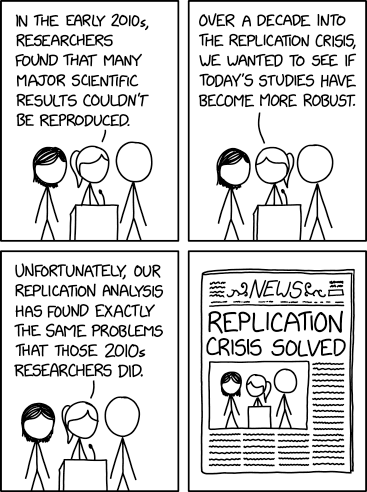You Shouldn’t Have Make Your Social Media Public to Get a Visa
Jul. 23rd, 2025 10:33 pmThe Trump administration is continuing its dangerous push to surveil and suppress foreign students’ social media activity. The State Department recently announced an unprecedented new requirement that applicants for student and exchange visas must set all social media accounts to “public” for government review. The State Department also indicated that if applicants refuse to unlock their accounts or otherwise don’t maintain a social media presence, the government may interpret it as an attempt to evade the requirement or deliberately hide online activity.
The administration is penalizing prospective students and visitors for shielding their social media accounts from the general public or for choosing to not be active on social media. This is an outrageous violation of privacy, one that completely disregards the legitimate and often critical reasons why millions of people choose to lock down their social media profiles, share only limited information about themselves online, or not engage in social media at all. By making students abandon basic privacy hygiene as the price of admission to American universities, the administration is forcing applicants to expose a wealth of personal information to not only the U.S. government, but to anyone with an internet connection.
Why Social Media Privacy Matters
The administration’s new policy is a dangerous expansion of existing social media collection efforts. While the State Department has required since 2019 that visa applicants disclose their social media handles—a policy EFF has consistently opposed—forcing applicants to make their accounts public crosses a new line.
Individuals have significant privacy interests in their social media accounts. Social media profiles contain some of the most intimate details of our lives, such as our political views, religious beliefs, health information, likes and dislikes, and the people with whom we associate. Such personal details can be gleaned from vast volumes of data given the unlimited storage capacity of cloud-based social media platforms. As the Supreme Court has recognized, “[t]he sum of an individual’s private life can be reconstructed through a thousand photographs labeled with dates, locations, and descriptions”—all of which and more are available on social media platforms.
By requiring visa applicants to share these details, the government can obtain information that would otherwise be inaccessible or difficult to piece together across disparate locations. For example, while visa applicants are not required to disclose their political views in their applications, applicants might choose to post their beliefs on their social media profiles.
This information, once disclosed, doesn’t just disappear. Existing policy allows the government to continue surveilling applicants’ social media profiles even once the application process is over. And personal information obtained from applicants’ profiles can be collected and stored in government databases for decades.
What’s more, by requiring visa applicants to make their private social media accounts public, the administration is forcing them to expose troves of personal, sensitive information to the entire internet, not just the U.S. government. This could include various bad actors like identity thieves and fraudsters, foreign governments, current and prospective employers, and other third parties.
Those in applicants’ social media networks—including U.S. citizen family or friends—can also become surveillance targets by association. Visa applicants’ online activity is likely to reveal information about the users with whom they’re connected. For example, a visa applicant could tag another user in a political rant or posts photos of themselves and the other user at a political rally. Anyone who sees those posts might reasonably infer that the other user shares the applicant’s political beliefs. The administration’s new requirement will therefore publicly expose the personal information of millions of additional people, beyond just visa applicants.
There are Very Good Reasons to Keep Social Media Accounts Private
An overwhelming number of social media users maintain private accounts for the same reason we put curtains on our windows: a desire for basic privacy. There are numerous legitimate reasons people choose to share their social media only with trusted family and friends, whether that’s ensuring personal safety, maintaining professional boundaries, or simply not wanting to share personal profiles with the entire world.
Safety from Online Harassment and Physical Violence
Many people keep their accounts private to protect themselves from stalkers, harassers, and those who wish them harm. Domestic violence survivors, for example, use privacy settings to hide from their abusers, and organizations supporting survivors often encourage them to maintain a limited online presence.
Women also face a variety of gender-based online harms made worse by public profiles, including stalking, sexual harassment, and violent threats. A 2021 study reported that at least 38% of women globally had personally experienced online abuse, and at least 85% of women had witnessed it. Women are, in turn, more likely to activate privacy settings than men.
LGBTQ+ individuals similarly have good reasons to lock down their accounts. Individuals from countries where their identity puts them in danger rely on privacy protections to stay safe from state action. People may also reasonably choose to lock their accounts to avoid the barrage of anti-LGBTQ+ hate and harassment that is common on social media platforms, which can lead to real-world violence. Others, including LGBTQ+ youth, may simply not be ready to share their identity outside of their chosen personal network.
Political Dissidents, Activists, and Journalists
Activists working on sensitive human rights issues, political dissidents, and journalists use privacy settings to protect themselves from doxxing, harassment, and potential political persecution by their governments.
Rather than protecting these vulnerable groups, the administration’s policy instead explicitly targets political speech. The State Department has given embassies and consulates a vague directive to vet applicants’ social media for “hostile attitudes towards our citizens, culture, government, institutions, or founding principles,” according to an internal State Department cable obtained by multiple news outlets. This includes looking for “applicants who demonstrate a history of political activism.” The cable did not specify what, exactly, constitutes “hostile attitudes.”
Professional and Personal Boundaries
People use privacy settings to maintain boundaries between their personal and professional lives. They share family photos, sensitive updates, and personal moments with close friends—not with their employers, teachers, professional connections, or the general public.
The Growing Menace of Social Media Surveillance
This new policy is an escalation of the Trump administration’s ongoing immigration-related social media surveillance. EFF has written about the administration’s new “Catch and Revoke” effort, which deploys artificial intelligence and other data analytic tools to review the public social media accounts of student visa holders in an effort to revoke their visas. And EFF recently submitted comments opposing a USCIS proposal to collect social media identifiers from visa and green card holders already living in the U.S., including when they submit applications for permanent residency and naturalization.
The administration has also started screening many non-citizens' social media accounts for ambiguously-defined “antisemitic activity,” and previously announced expanded social media vetting for any visa applicant seeking to travel specifically to Harvard University for any purpose.
The administration claims this mass surveillance will make America safer, but there’s little evidence to support this. By the government’s own previous assessments, social media surveillance has not proven effective at identifying security threats.
At the same time, these policies gravely undermine freedom of speech, as we recently argued in our USCIS comments. The government is using social media monitoring to directly target and punish through visa denials or revocations foreign students and others for their digital speech. And the social media surveillance itself broadly chills free expression online—for citizens and non-citizens alike.
In defending the new requirement, the State Department argued that a U.S. visa is a “privilege, not a right.” But privacy and free expression should not be privileges. These are fundamental human rights, and they are rights we abandon at our peril.








